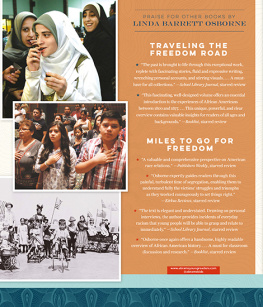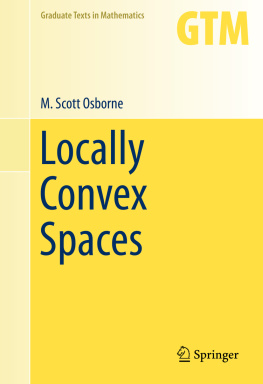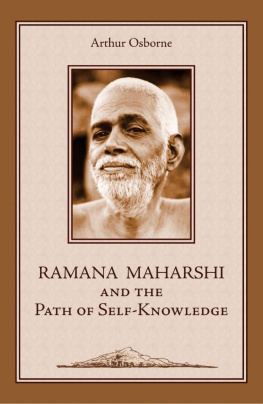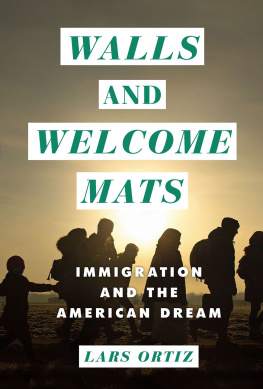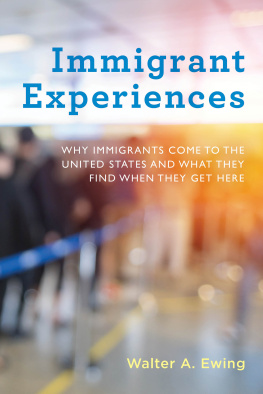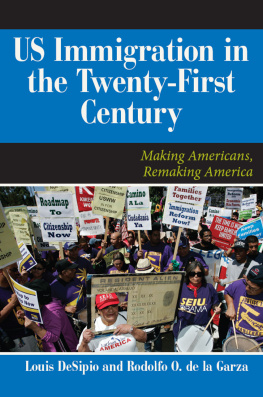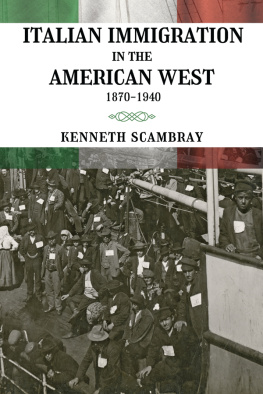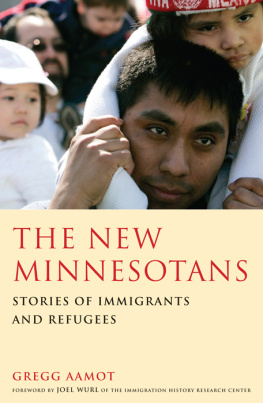
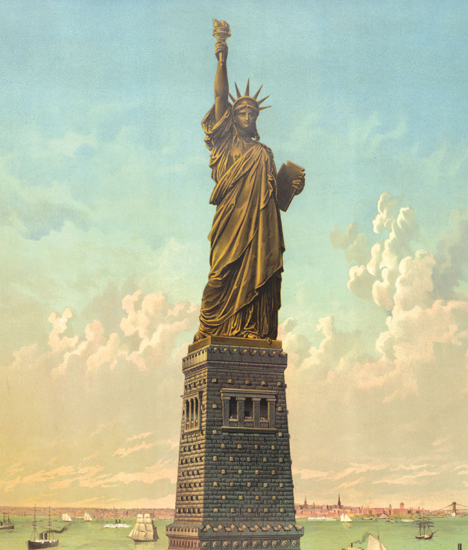

In memory of my great-grandparentsthe Boccuzzis, Valeris, Marinos, and Ceronesand for immigrants who continue to come to our country with courage and hope
Library of Congress Cataloging-in-Publication Data
Osborne, Linda Barrett, 1949This land is our land : the history of American immigration / by Linda Barrett Osborne.
pages cm
Includes bibliographical references and index.
ISBN 978-1-4197-1660-7 (alk. paper)
eISBN 978-1-6131-2927-2
1. United StatesEmigration and immigrationHistoryJuvenile literature. 2. ImmigrantsUnited StatesHistoryJuvenile literature. I. Title.
E184.A1O83 2016
304.80973dc23
2015017877
Text copyright 2016 Linda Barrett Osborne
Book design by Maria T. Middleton & Sara Corbett
For illustration credits, see .
Published in 2016 by Abrams Books for Young Readers, an imprint of ABRAMS. All rights reserved. No portion of this book may be reproduced, stored in a retrieval system, or transmitted in any form or by any means, mechanical, electronic, photocopying, recording, or otherwise, without written permission from the publisher.
Abrams Books for Young Readers are available at special discounts when purchased in quantity for premiums and promotions as well as fundraising or educational use. Special editions can also be created to specification. For details, contact specialsales@abramsbooks.com or the address below.

115 West 18th Street
New York, NY 10011
www.abramsbooks.com
CONTENTS

The Statue of Liberty was a gift from France to the United States to celebrate our countrys free and democratic traditions. It stands on an island in New York Harbor and was dedicated in 1886.
INTRODUCTION
All eight of my great-grandparents were born in Italy.They came to the United States in the 1880s and 1890s. At least two of them arrived before 1892, when Ellis Island opened to process the millions of people emigrating from Europe. My great-grandparents were immigrants to this country.

Nicholas and Josephine Valeri, my great-grandparents, immigrated to the United States in the nineteenth century. All my great-grandparents were born in Italy, while their childrenmy grandparentswere born in the United States.
So were the English settlers of Jamestown, Virginia, in 1607, and the Pilgrims, in 1620.
The United States is a nation of immigrants and their descendants. The ancestors of everyone who lives here, except for the Native Americans discovered in North America by Europeans in the early sixteenth century, came from somewhere else. (The slaves brought from Africa also came from across the Atlantic, although they came against their will. Theirs is a separate story.) Most Americanseven those who call for limits on immigrationhave an image of our country as welcoming others who seek freedom and opportunity. Look at the words by poet Emma Lazarus engraved on the base holding the Statue of Liberty:
Give me your tired, your poor,
Your huddled masses yearning to breathe free,
The wretched refuse of your teeming shore.
Send these, the homeless, tempest-tost to me,
I lift my lamp beside the golden door!
The Statue of Liberty is a symbol of hope, of a new start, recognized around the world. People have immigrated to America, to make a better life for themselves and their families, since the first European colonists arrived in the 1500s. Some of the earliest Europeans to explore and settle in what is now the United States included the Spanish, Dutch, and French. The Spanish founded St. Augustine, in what became Florida, in 1565. This is the oldest city on the U.S. mainland where people have continually lived. The first permanent English colony at Jamestown, Virginia, was not established until 1607.
It lyes in a mild & temperate Clymate, William Byrd II wrote in 1736 about the colony of Virginia. The woods are full of Buffalos, Deer, & Wild Turkeys.... It is within the Government of Virginia, under the King [of England], where Liberty & Property is enjoyed, in perfection & the impartial administration of Justices hinders the Poor from every kind of Oppression from the Rich, & the Great.
Any man or woman are fools that would not venture and come to this plentyful Country where no man or woman ever hungered or ever will, Margaret McCarthy, who arrived in New York in 1850, wrote to her father in Ireland.
We came over here with nothing but our bare hands, recalled Albertina di Grazia, who emigrated from Italy in 1913. We were dirt poor. This country gave us a chance to work and to get something out of our work and we worked hard for our children. And now theyve got what we worked for. Were satisfied.
Immigrants who settle in the United States are grateful for the opportunities the country offers them. They are often welcomed, but Americans also have a long history of setting limits on immigration or rejecting it outright. George Washington, the first president of the United States, sometimes supported immigration. But he also wrote, I have no intention to invite immigrants, even if there are no restrictive [government] acts against it. I am opposed to it altogether.

George Washington, the first American president, supported immigration of skilled workers and professionals to the United States, but he sometimes wrote against encouraging any new immigrants.
Washington also wrote to John Adams, who would follow him as president: [With] respect to immigration... that except of useful mechanics and some particular... men and professions, there is no use of encouragement.
Both of these ways of looking at immigrationopenness to all or restrictions for someare part of our heritage. In the early twenty-first century, we still debate who and how many people should be allowed into our country, and if and when they should be allowed to become citizens. Some Americans think of the United States as multicultural, made stronger by the diversity of different ethnic groups. Others think that there should be one American culture and that it is up to the immigrant to adapt to it. Still others have believed that some immigrant groups are incapable of adapting and should not be permitted to stay.
Americans whose families have lived here for sometimewhether centuries, decades, or just a few yearsoften discount their own immigrant heritage. They look down on newcomers from other countries. Indeed, far from inviting Lazaruss huddled masses, our laws, policies, and prejudices have often made it difficult for many immigrants to enter the United States or to find themselves welcome when they are here.
Next page
